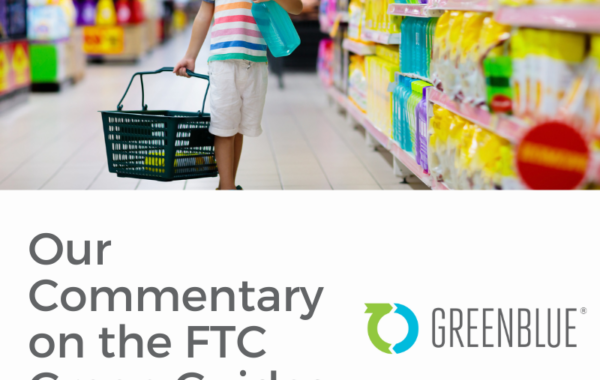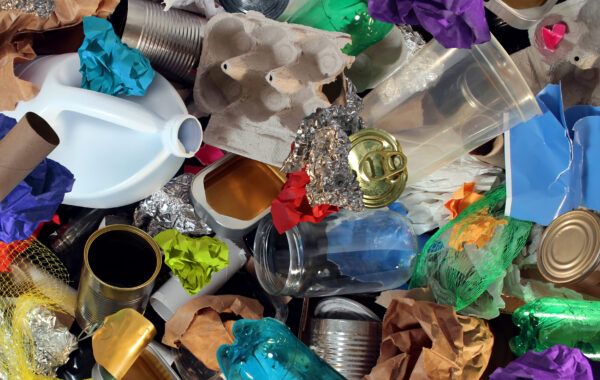October 31, 2017
The SPC Advance 2017 panel session on recyclability goals featured sustainability experts from Walmart, Nestlé USA, the Association of Plastic Recyclers, Starbucks Coffee Company and Proctor & Gamble. Each of the companies in the session has set ambitious goals around recyclability, including Walmart’s goal to have its private brand packaging be 100% recyclable by 2025; Proctor & Gamble’s goal to reduce the amount of packaging they use by 20% by 2020; and Nestlé’s commitment to save 140,000 tons of material between 2015 and 2020. In the session, the panelists talked about their company’s goals, where they look for guidance in setting goals, and what the goals of the future might look like.
To begin, each panelist talked about how their company focuses its goals. Some companies look for guidance in their own supply chain, while others look to society at large. Rebecca Zimmer, Global Director of Environment for Starbucks, says that Starbucks focuses on sustainability within its coffee supply chain. They’ve used that focus to establish an ethical sourcing standard and apply it across all areas from which they source coffee, and have so far achieved 99% ethically sourced coffee, ensuring that farmers are paid fair wages and coffee beans are grown in an environmentally responsible way. Zimmer also noted the challenges ahead for Starbucks, calling single-use packaging “our albatross and our biggest opportunity.” Zimmer said the company has goals around greener cups and packaging.
Ashley C. Hall, Senior Manager of Sustainability at Walmart, said that Walmart has worked for a long time on doing more with less, even before the word sustainability was used. Walter Peterson, Manager, Packaging Innovation and Sustainability at Nestlé USA, said that his company makes commitments to society and to how they operate as a company.
One common theme among the panelists was the value of partnerships. As Peterson said, “You cannot do things without partnerships.” Nestlé Waters and Danone have partnered with Origin Materials to form the NaturALL Bottle Alliance, which is working to develop a commercial scale PET bottle made from bio-based material. Peterson spoke to his desire for Nestlé to have more partnerships going forward. Zimmer talked about Starbucks’ partnership with Conservation International. The two organizations are working with 60 partners, including retailers, traders, roasters, and others, on the Sustainable Coffee Challenge, an effort to make coffee the first sustainable agriculture product in the world.
The panelists were asked what goals they wish their companies had that they don’t already have. Steve Sikra, Proctor & Gamble’s Global Leader for Packaging Material Science and Technology, pointed to the fact that flexible film is here to stay, and that we need to find a good home for it. Sikra said that he hopes P&G can be a part of finding a solution to that challenge. Zimmer talked about the challenge of marine debris. She said that while their goals are broad enough in other areas, if she could add a goal for Starbucks, it would be one that takes responsibility for Starbucks’ contribution to ocean plastic. Hall spoke about how some of Walmart’s goals are aimed at a Circular Economy strategy while others are designed with Sustainable Materials Management in mind. She said that Walmart wants to work towards both, but uses different goals to act as checks and balances against each other.
On the topic of creating stronger recycled content goals, Steve Alexander, President of the Association of Plastic Recyclers, emphasized the need for innovation and for creating value in the minds of consumers. He used the example of the disposable camera, which he said was recycled at a 98% rate because consumers had an incentive for returning the camera to have their photos printed. The cameras were refurbished and reused until they were eventually melted down and remolded into the same product.
Sikra said that recycled content fits into the demand side of the equation. He said P&G has been using post-consumer resin for 29 years in North America. To expand that use into other parts of the world and new resins takes innovation. He said P&G has partnered with PureCycle Technologies to scale up the use of chemical recycling for polypropylene.
The panel made it clear that while no two companies goals are exactly alike, each of these goals brings us closer to increasing the recyclability of packaging and the use of recycled content.





